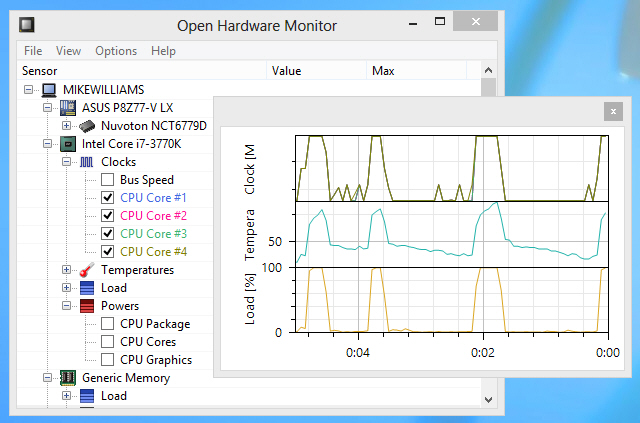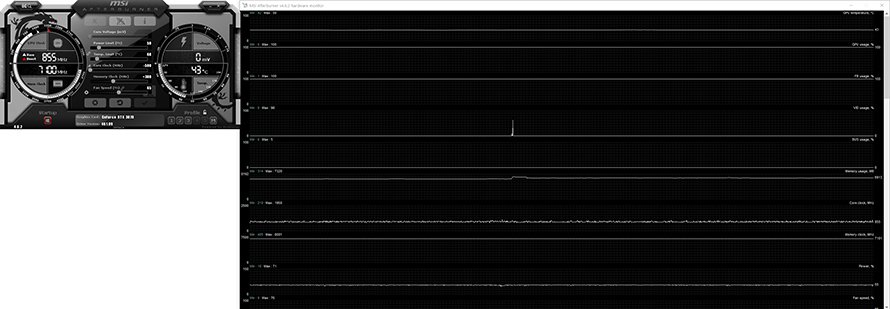
#GPU TEMP MONITOR FULL#
If it looks as follows, switch it to the full view using the "More details" link in the bottom right corner. Igors tests show, on an MSI RX 6800 XT Gaming X, a temperature delta of 1220C between the average and the hotspot.
#GPU TEMP MONITOR HOW TO#
To Monitor GPU Temperature in Windows 10 Task Manager, How to monitor your GPU’s temperature By far, the easiest tool to check your GPU’s temperature in Windows 10 can be found by firing up Windows Task Manager and jumping to the Performance tab. Currently the temperature value is only supported in Celsius.

Specifically one which supports version 2.4 (or higher) of WDDM is required.
#GPU TEMP MONITOR DRIVER#
You may need an updated graphics driver to see the temperature.


Press Add it now or press + and select a widget from the menu to add widgets you would like to. When enabled, it will allow you to quickly see which folder an app is launched from, and what its command line arguments are. Monitor and log all the temperatures and fan speeds inside your Mac. A notification will alert you that there are new widgets. Tip: You can save your time by creating a special shortcut to open the Task Manager directly on the Startup tab.Īlso, it is possible to make Task Manager show the command line of apps on the Processes, Details and Startup tabs. There is a special tab "Startup" which is designed to manage startup apps. It is able to control which apps launch during startup. So you just installed a graphics card and don’t want your purchase to go up. Whether you're gaming or browsing, or if the GPU is idle, the normal temperature to aim for is whatever your card manufacturer specifies is safe. You can only monitor the Memory junction temperature, which is basically a 'hotspot temp', which is the edge temp of the hottest sensor of any of the VRAM sensors on the card, and NOT the average temperature of the memory of a memory bank (unlike GPU Core temperature). Windows 10's Task Manager includes a performance graph and startup impact calculation. A good GPU temperature range is any temperature under the manufacturer's maximum rating for your specific graphics card. Its compatible with most PCs, so it should suit. It can analyze the performance of various hardware components and also shows you all the processes running in your user session, grouped by app or process type. CoreTemp is one of the easiest and most efficient ways to check the CPU and GPU temperatures on your computer. A good GPU temperature range is any temperature under the manufacturers maximum rating for your specific graphics card. If you have a four-core Intel processor with Hyper-Threading, for example, you’ll see: "CPU Usage," "CPU1 Usage," "CPU2 Usage," "CPU3 Usage," and so on, all the way up to "CPU8 Usage." CPU clocks, temperature, RAM usage, and power are also popular choices.Task Manager in Windows 10 comes with neat features.

If you have a six- or eight-core processor, you might want to keep an eye on the CPU performance and how work is distributed.Īfterburner automatically detects how many threads your CPU has and offers options accordingly. Gamers often talk about how many games aren’t optimized for processors over four cores. To enable this, select the checkbox next to "Framerate," and then select the checkbox next to "Show in On-Screen Display." One of the most common properties people want to display is the frame rate to make sure their machine is hitting that all-important golden zone of 60 frames per second. After you choose a property to show up in the on-screen display (OSD), you'll see "In OSD" under the "Properties" tab to the right of each name.


 0 kommentar(er)
0 kommentar(er)
